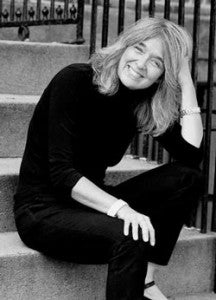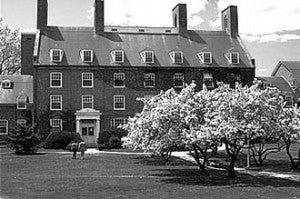Please click one of the collapsible tabs to read more about the 2008 Ocean State Summer Writing Conference.
These tabs may take a while to load!
To return to the current conference, click on “Ocean State Summer Writing Conference” above.
-
June 19 – June 21
Featured Guests:
Ann Hood
Nick Carbò
Nina Cassian
Denise Duhamel
Enjoy a weekend of writing and lively interaction with professional writers in the exciting environs of the beautiful Kingston campus of the University of Rhode Island, just minutes away from the world-class beaches of Narragansett, Charlestown, and Newport, Rhode Island.
-
Ann Hood is the author of Somewhere Off the Coast of Maine (Bantam, 1987), Waiting to Vanish (Bantam, 1988), Three-Legged Horse (Bantam, 1989), Something Blue (Bantam, 1991), Places to Stay the Night (Doubleday, 1993), The Properties of Water (Doubleday, 1995), Ruby (Picador, 1998) and The Knitting Circle (Norton, 2007). She has also written a memoir, Do Not Go Gentle: My Search for Miracles in a Cynical Time (Picador, 1999); a book on the craft of writing, Creating Character Emotions (Story Press, 1998); and a collection of short stories, An Ornithologist’s Guide to Life (Norton, 2004). She has won a Best American Spiritual Writing Award, the Paul Bowles Prize for Short Fiction, and two Pushcart Prizes. She now lives in Providence, RI with her husband and their children.
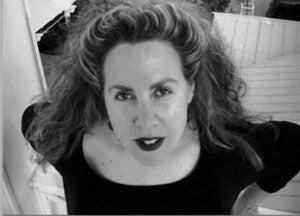
Denise Duhamel’s Two and Two (Pittsburgh, 2005) is the winner of the Milt Kessler Poetry Award. Her other titles include Mille et un Sentiments (Firewheel, 2005), and Queen for a Day: Selected and New Poems(Pittsburgh, 2001). Her work has been anthologized widely, including several editions of The Best American Poetry. A recipient of a National Endowment for the Arts Fellowship, she teaches poetry at Florida International University in Miami.
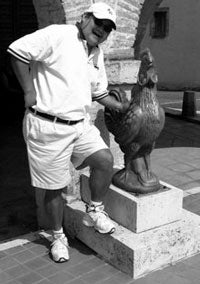
Nick Carbò is the author of three poetry collections — Andalusian Dawn (Cherry Grove Collections, 2004), Secret Asian Man (Tia Chucha, 2000), and El Grupo McDonald’s (Tia Chucha, 1995). He is also the editor of three anthologies of Philippine literature: Pinoy Poetics: Essays on Filipino and Filipino American Poetics (Meritage Press, 2004); (co-editor with Eileen Tabios) Babaylan: Fiction and Poetry by Filipina Women Writers (Aunt Lute Books, 2000); and Returning a Borrowed Tongue: Filipino and Filipino American Poetry (Coffee House Press, 1995). His criticism and essays have been published in The Encyclopedia of Modern Asia (Scribners, 2002), Melus, Poets & Writers Magazine, and The Anchored Angel (Kaya Press, 1999).
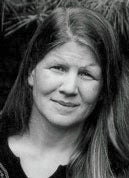
Talvikki Ansel has published two books of poems: My Shining Archipelago (Yale Series of Younger Poets Award) and Jetty & Other Poems. She has received a Stegner Fellowship, Pushcart Prize and Lannan Residency Fellowship. Currently teaching at URI, she has also taught at Centre College, Virginia Commonwealth University and the University of Texas at Austin.

Annette Blair began her career writing Amish, Regency, and Victorian historicals but hit her stride, and the bestseller lists, with contemporary comedy in the form of Bewitching Romantic Comedies andMystic Mysteries (Penguin Putnam). Her latest, Gone With The Witch, is her fourteenth release. She is currently contracted to write books fifteen to twenty-one.

Amy Caldwell has worked in the publishing industry for 15 years; she’s an Executive Editor at Beacon Press. She acquires non-fiction books, from the literary to scholarly crossover. Among her titles are Eboo Patel’s Acts of Faith, Fred Pearce’s When the Rivers Run Dry, Joe Mackall’s Plain Secrets,Hella Winston’s Unchosen, Marty Moran’s The Tricky Part, Steve Puleo’s Dark Tide and The Boston Italians, and E.J. Graff’s What Is Marriage For?
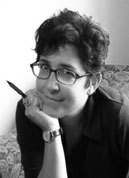
Mary Cappello, an award-winning writer and educator, is the author of Night Bloom: A Memoir and most recently of Awkward: A Detour, a book-length essay on ‘awkwardness’ that was a Los Angeles Times Bestseller. Her literary nonfiction and experimental prose appears in Salmagundi, Michigan Quarterly Review, SouthwestReview, Raritan, American Letters and Commentary, andelsewhere. Currently, she is composing Swallow: Foreign Bodies, their Ingestion, Aspiration and Extraction in the Age of Chevalier Jackson under contract with The New Press, and she has just completed Called Back: A Breast Cancer Memoir, an excerpt of which will appear in The Georgia Review. Cappello is Professor or English at URI.
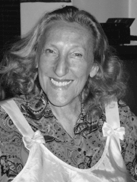
Nina Cassian, born in Romania, and now a resident of New York City, is an internationally renowned poet, composer of chamber and symphonic music, film critic, journalist, and translator of William Shakespeare, Bertold Brecht, Christian Morgenstern, Iannis Ritsos, and Paul Celan. She has published over fifty books, including Life Sentence: Selected Poems (Norton, 1990), edited by William Jay Smith; Take My Word For It (Norton, 1998); Cheerleader At the Funeral; and works of fiction and books for children. Her poems have appeared in The New Yorker, Atlantic Monthly, New England Review, andAmerican Poetry Review.
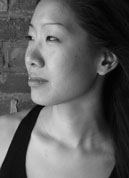
Tina Chang’s Half-Lit Houses was a finalist for the 2005 Asian American Literary Award. She received an MFA in poetry from Columbia University. Her poems have appeared in numerous prestigious journals and anthologies. She has received awards from the Academy of American Poets, the Barbara Deming Memorial Fund, the Ludwig Vogelstein Foundation, the New York Foundation for the Arts, Poets & Writers, and the Van Lier Foundation.
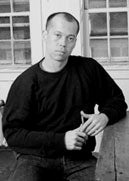
Alexander Chee is a recipient of the 2003 Whiting Writers’ Award, a 2004 NEA Fellowship in Fiction and fellowships from the MacDowell Colony. His first novel, Edinburgh (Picador, 2002), won the Michener Copernicus Prize, the AAWW Lit Award and the Lambda Editor’s Choice Prize, and was a Publisher’s Weekly Best Book of the Year. He is currently the Visiting Writer at Amherst College. His second novel, The Queen of the Night, is forthcoming from Houghton Mifflin.
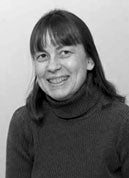
Betty J. Cotter is the author of the novel Roberta’s Woods, which was released this spring by Five Star. She was named the 2006 fiction fellow by the R.I. State Council on the Arts. She is managing editor of Independent Newspapers in Wakefield, R.I., and a third-semester student in the MFA in Writing program at the Vermont College of Fine Arts.
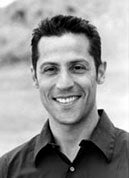
Peter Covino is an Assistant Professor of English and Creative Writing at the University of Rhode Island. He is the author of the poetry collection, Cut Off the Ears of Winter (New Issues 2005), winner of the 2007 PEN/Osterweil Award for emerging poets, and a finalist for the Thom Gunn Award and the Paterson Poetry Prize. His chapbook. Straight Boyfriend (2001), won the Frank O’Hara Poetry Prize. His poems have appeared or are forthcoming in Colorado Review, Columbia, Gulf Coast, Interim, The Paris Review, Verse, The Penguin Anthology of Italian-American Writing, and Contemporary European Poets(Graywolf, 2008), among others.
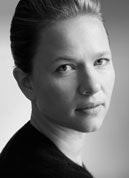
Amity Gaige is the winner of a Truman Capote Fellowship, a Fulbright Fellowship, and a MacDowell Colony Fellowship. In 2006, she was named one of “5 Under 35” emerging writers by the National Book Foundation. Her debut novel, O My Darling, was published in 2005. Her second novel, The Folded World, was recently named one of the best books of 2007 by The Chicago Tribune. She has recently moved from Providence to Amherst, Massachusetts, where she teaches at Mt. Holyoke College.
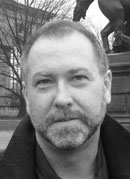
Scott Hightower is the author of three books of poetry. He is also the recipient of a Willis Barnstone Translation Prize. Hightower is a contributing editor to The Journal. He has taught at Fordham, F.I.T., and Drew University, and is an adjunct writing professor at NYU. A native Texan, he lives in New York City.
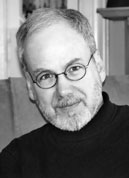
Richard Hoffman is author of Half the House: A Memoir, and the poetry collections Without Paradiseand Gold Star Road, winner of the 2006 Barrow Street Press Poetry Prize. He has received several fellowships and awards for his writing, most recently The Literary Review’s Charles Angoff Prize. He teaches at Emerson College and in the Stonecoast MFA Program.
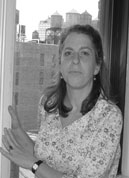
Melissa Hotchkiss’ first book of poems, Storm Damage, was published by Tupelo Press in 2002. Her poems have appeared in numerous publications such as failbetter.com, The New York Times, Free Inquiry, LIT, 3rd bed, Lyric Poetry Review, Upstairs at Duroc, and Heliotrope. Her prose has appeared in The New York Times and the New Virginia Review. Melissa is one of the editors of the poetry journal Barrow Street and a member of Urban Park Rangers, a poetry workshop in New York City.
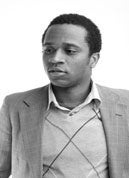
Jibade-Khalil Huffman was born in Detroit and educated at Bard and Brown. He is the author of19 Names For Our Band, forthcoming from Fence Books. His poetry, fiction and photography have appeared in the Boston Review, Court Green, 6×6, NOON and Encyclopedia, among others. The recipient of the 2004 Grolier Poetry Prize, he lives in Queens, NY.
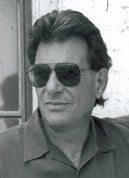
Robert Leuci is an adjunct professor in the URI English department. He has written seven crime novels, translated into four languages and has most recently published a memoir with Harper Collins, All The Centurions. He has also written a television play for the Arts And Entertainment network show 100 Centre Street and has done a radio play for German radio, Brooklyn Roofs. In 1999 he received the South County Center For the Arts literary prize. He lives in Saunderstown.
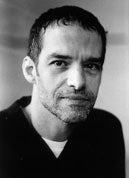
Robin Lippincott is the author of three novels, In the Meantime (2007), Our Arcadia: An American Watercolor (2002) and Mr. Dalloway (1999), and a collection of short stories, The Real, True Angel(1996). The recipient of fellowships to Yaddo and the MacDowell Colony, his work has also appeared in The Paris Review, Fence, American Short Fiction, The New York Times Book Review, The Literary Review, The American Voice, Provincetown Arts, and many other journals. He teaches in the brief-residency MFA in the Writing Program at Spalding University and at Harvard University.
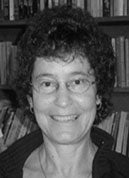
Jody Lisberger’s story collection, Remember Love, was recently published by Fleur-de-Lis Press. Her fiction has appeared in Confrontation, Fugue, Michigan Quarterly Review, The Louisville Review, and Thema. She is on the faculty of the brief-residency M.F.A. in Writing Program at Spalding University in Louisville, Kentucky. She is also a full-time lecturer in Women’s Studies at the University of Rhode Island, where she specializes in courses on feminist theory and postcolonial literature.
Wayne Miller is the author of two books of poems, The Book of Props (Milkweed, 2009; forthcoming) and Only the Senses Sleep (New Issues, 2006). He is also a translator of Albanian poet Moikom Zeqo’s I Don’t Believe in Ghosts (BOA, 2007) and co-editor of the anthology New European Poets (Graywolf, 2008). The recipient of multiple prizes from the Poetry Society of America and the Poetry Foundation, he teaches at the University of Central Missouri, where he edits Pleiades: A Journal of New Writing.
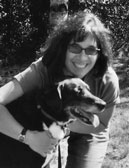
Pamela Petro writes frequently about the intersection of art and travel. Her articles and essays have appeared in The New York Times, The Atlantic Monthly, The Daily Telegraph in London, and many other newspapers, journals, and magazines. A winner of the Bedford Pace Prize for travel literature, she is also the author of three genre-bending narratives about such disparate places as Wales, the American South, and Southwest France.
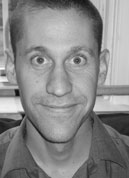
David Rutschman’s stories and essays have appeared in Alaska Quarterly Review, The Massachusetts Review, Puerto del Sol, Salt Hill, Seneca Review, The Southeast Review, and other journals. He’s a graduate of the MFA Program at Warren Wilson College and the recipient of fellowships from the Texas Commission on the Arts and the Alfredo Cisneros del Moral Foundation. An instructor in creative writing and U.S. literature at URI, he lives in Providence.
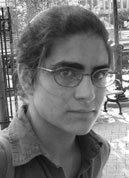
Kate Schapira is the author of three poetry chapbooks, Phoenix Memory (horse less press, 2007), The Saint’s Notebook (CAB/NET Chapbook Series, 2008) and Case Fbdy. (Rope-A-Dope Press, 2008). Other work has recently appeared in Practice, Aufgabe, Ecopoetics, Denver Quarterly and A Sing Economy,an anthology from Flim Forum Press. She curates the Publicly Complex Readings Series in Providence, RI, and teaches poetry and creative nonfiction at the University of Rhode Island and Brown University.
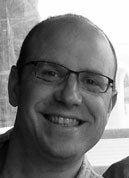
Aaron Tillman received a Short-Story Award for New Writers from Glimmer Train Stories and won First Prize in the 2007 Nancy Potter Short Story Contest at URI. His fiction has appeared in Glimmer Train Stories, The Carolina Quarterly, and The Babson Literary Review. Aaron has an MFA in Fiction Writing from Sarah Lawrence College and has worked as a contributing writer and editor for Chelsea House Publishers. He is currently working on his doctoral dissertation at URI, focusing on Jewish American magical realism.
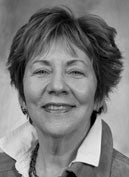
Nicki Toler is a working writer whose essays and non-fiction pieces have appeared in a variety of publications over the last 15 years. Her “Just a Thought” column runs in East Greenwich Magazineeach month, and her fiction and non-fiction work were featured in the 2007 Rhode Island Writers’ Circle Anthology. She is a Web editor at the University of Rhode Island.
-
Please return for updates. Direct inquiries to ossummerwriting@gmail.com

Thursday, June 19, 2008
Please note that Pre-Conference sessions run during the afternoon of June 19 and the morning of June 20. There is a separate charge for these sessions. The Conference itself begins in the late morning of June 20 and runs through June 21.Please note that because some events have limited space, events that appear below may not appear on the registration page. When you click on the registration link, keep this window open or have alternate choices in mind. 2 p.m. Pre-Conference Registration opens in the Swan/Independence Hall Lobby 3:00 – 5:30 p.m.Pre-Conference Workshops: Session I Jibade-Khalil Huffman/Beginning Fiction
Swan/Independence Hall, Room 211As a series of exercises in writing and reading, this workshop will examine the ways in which we engage with prose on both the level of practice and as “scholarship;” that is, how and why we read and how this shapes our own work. Students are required to choose (and make enough copies of) a story of their choice — not a “favorite,” per se, but rather a text that informs their own writing. In the pursuit of narrative truth we will, in addition to doing a number of short writing exercises and producing in our time together at least one short-short story (or at least the beginnings of a story) and examine fiction from the most basic vantage point — that of the sentence.
Amity Gaige/Advanced Fiction
Bliss Hall, Room 206
This is a course for the intermediate or advanced writer of fiction to continue his or her exploration of technique and voice. Topics to be addressed include the process of discovering and developing style, and the experimentation with point of view. The workshop leader will notify enrolled students a week in advance with a reading assignment to prepare for the first class. We will complete in-class writing to share aloud, as well as a significant assignment for the second day of the workshop.
Wayne Miller/Beginning Poetry
Swan/Independence Hall, Room 213Through close reading of a variety of great poems — contemporary and otherwise — as well as through a series of flexible assignments and through careful critique of poetry produced by members of the workshop, students will expand their understanding of the poetry of our moment. Ideally, students will leave the workshop exposed to a variety of new poets who help them deepen their poetic projects, as well as with several strong new poems well underway.
Tina Chang/Advanced Poetry
Swan/Independence Hall, Room 209This workshop is designed for students who are interested in deepening their understanding of the craft and practice of poetry. Students ground their work in a knowledge of language, communication, revision. The first day will be comprised of writing prompts and collaborative projects to jump start creativity. We will also examine the wide array of contemporary forms and techniques of established writers and the motivating ideas behind their body of work, discussing how they define themselves. The second day of workshop will focus on discussion of the writing process (habits, rituals, writer’s block, energy of revision) and individual critique of previously written poems, emphasizing the analysis and interpretation of peer poems and the development of clear writing. Students are expected to come to with an open attitude and a passion for words.
Jody Lisberger/Beginning Nonfiction
Bliss Hall, Room 211One of the many challenges beginning creative nonfiction writers face is shaping their essays so as to engage both vivid scene and meaningful reflection. This workshop will offer models, suggestions, and short writing assignments to help develop these two important features. It will also offer models and suggestions for the variety of shapes an essay might take. The workshop leader will notify enrolled students a week in advance about a short reading assignment (to be emailed as a pdf.) and a short writing exercise to prepare for the first workshop on Thursday. The leader will also assign at the first workshop a few short readings (handouts) and a writing exercise for workshop on Friday.
Richard Hoffman /Advanced Nonfiction
Swan/Independence Hall, Room 215I, says the first-person narrator, I. I think. I feel. I remember. I wish. I regret. I hope. I wonder. And yet, with all humility, it says only, “This is how I see it,” not “This is how it is.” This seminar will explore the many possibilities of first-person narration, including the many different ways to create a well-rounded, coherent representation of the self, a complex character called “I.”
Scott Hightower/Teaching By Writing
Swan/Independence Hall, Hoffman RoomThis seminar will address the class activity in which a teacher opts to use the student’s writing as the text. The focus will be on the benefits of teaching the elements of writing through the creative practice vs. literary analysis.
University of Rhode Island Summer Course Meetings
English 205/Creative Writing: Fiction (Katherine Kulpa)
Location: Bliss 304English 205/Creative Writing: Fiction (Aaron Tillman)
Location: Bliss 305English 205/Creative Writing: Fiction (David Rutschman)
Location: Gilbert 101English 205/Creative Writing: Poetry (Melissa Hotchkiss)
Location: Wale 223English 499/Advanced Creative Writing (Talvikki Ansel)
Location: Wale 2265:45 – 7:30 p.m. “Sampler” Reading by Pre-Conference Workshop Leaders
Reception & Refreshments
Swan/Independence Hall, Hoffman Room
Friday, June 20, 2008 9:00 – 11:30 a.m. Pre-Conference Workshops:
Session II
Amity Gaige/Advanced Fiction
Bliss Hall, Room 206Jibade-Khalil Huffman/Beginning Fiction
Swan/Independence Hall, Room 211Tina Chang/Advanced Poetry
Swan/Independence Hall, Room 209Wayne Miller/Beginning Poetry
Swan/Independence Hall, Room 213Richard Hoffman /Advanced Nonfiction
Swan/Independence Hall, Room 215Jody Lisberger/Beginning Nonfiction
Bliss Hall, Room 211Scott Hightower/Teaching By Writing
Swan/Independence Hall, Hoffman Room11:00 a.m. Conference Registration Opens
Refreshments served12:45 – 1:45 p.m. Lunch: box lunches available
Swan/Independence Hall LobbyOpening Ceremony & Keynote Address
Welcome from President Robert Carothers
Opening Remarks by English Dept. Chair Stephen Barber
Keynote Address & Reading by Ann Hood
Swan/Independence Hall Auditorium2:00 – 3:15 p.m. Panel Discussions I Poetry Panel Discussion: Dwelling in Possibility
Swan/Independence Hall, Room 203Emily Dickinson wrote that possibility was “a fairer house than prose.” What makes poetry the most “possible” of forms of writing? What can it do that other genres probably could, but often don’t? What are the potentialities — and pitfalls — of what used to be called “free verse”?
Moderator: Brett Rutherford. Panelists: Talvikki Ansel, Melissa Hotchkiss, Kate Schapira.
Cross-Genre Panel Discussion: Taking Place (and Time)
Swan/Independence Hall, Room 206Every narrative (including some poems) takes place—happens somewhere, during some time. How do we create or re-create place and time in writing? How do place and time shape the actions and emotions that they hold?
Moderator: Nicki Toler. Panelists: Tina Chang, Jody Lisberger, Pamela Petro.
Fiction Panel Discussion: Character-Driven, Plot-Driven or What-Driven?
Swan/Independence Hall, Hoffman RoomBradford Morrow once commented, “It’s such a beautiful piece of prose on how a bullet comes out of a gun that somebody’s gotta get hurt.” When you write, what gets the story started? Do you work from character and relationship and see what happens? Do you work from plot and situation—“What would happen if a physicist fell down a mineshaft?” Does a piece of language—whether found or invented—start you off? Fiction writers discuss the elements that drive their stories and how they bring the other elements in line.
Moderator: David Rutschman. Panelists: Amity Gaige, Robert Leuci, Aaron Tillman.
Workout Room Open
Alumni Building Meeting Room
*Note: Workout Room also available today from 3:30 – 4:00 p.m. and 4:15 – 5:30 p.m. (see below)3:30 – 4:45 p.m. Craft Sessions IFiction Craft Session: Robin Lippincott
Swan/Independence Hall, Room 203There are probably almost as many ways to tell a story as there are stories to tell. In this workshop, I’ll look at examples of some of the less conventional ways, including uncommon uses of point of view, as well as other atypical narrative strategies, such as-story as inventory, story as collage, stories with multiple narrators, etc. Works to be discussed include Crime and Punishment, Faulkner’s “A Rose for Emily,” Maura Stanton’s “Scotland,” Madame Bovary, Lorrie Moore’s “How To Become a Writer,” Susan Sontag’s “The Way We Live Now” and others. We’ll also do a related writing exercise.
Poetry Craft Session: Kate Schapira
Swan/Independence Hall, Room 201Sometimes what’s most important to us is hardest to write about—often because what’s important to us is important to others, giving the feeling that “it’s all been said before.” In this workshop, we’ll look at a paradox of writing: that formal constraints, by cutting off some avenues and opening up others, can provide us with greater freedom to write about love, desire, faith, sadness and anger—the big stuff. We’ll read poems by Lisa Jarnot, Gerard Manley Hopkins, and Rosmarie Waldrop, as well as one of Shakespeare’s sonnets, and write poems using existing or invented formal constraints.
Nonfiction Craft Session: Writing Place, Writing the Self:
Pamela Petro
Swan/Independence Hall, Room 202How does where contribute to who, what and why? Participants will discuss the role of place in memoir and in the events that memoir chronicles. Readings (provided) from The Architect of Desire: Reality and Danger in the Stanford White Family, by Susannah Lessard (Delta, 1996).
Workout Room Open
Alumni Building Meeting Room4:45 – 6:00 p.m. Reading: Robin Lippincott & Nina Cassian
Swan/Independence Hall AuditoriumWorkout Room Open
Alumni Building, Meeting Room6:15 – 8:15 p.m. Drinks & Optional Dinner
University Club8:30 p.m. Concert: The Music of Nina Cassian
Prof. Manabu Takasawa, pianist
Kerri O/Connor, clarinet
Memorial Union BallroomSponsored with the University of Rhode Island Department of Music and Vibe of the VenueA very special concert presenting the music of internationally known poet-composer Nina Cassian.
Admission is FREE with conference badge.

Saturday, June 21, 2008 9:00 – 10:15 a.m. Craft Sessions II
Fiction Craft Session: Alexander Chee
Swan/Independence Hall, Room 203Many of us are familiar with the scene that comes to us without a plot, a little mysterious and aloof to our desire to write more of it. Imposing a plot from the outside may seem a little unnatural, but how do you approach moving forward? In this class we’ll look at several approaches, using exercises that take these scenes apart in order to help us better create plots organic to the material there. If possible, bring a recent scene of this kind to use in the class.
Poetry Craft Session: Denise Duhamel & Nick Carbò
Swan/Independence Hall, Room 201When two people or more write one poem together, it is called collaborative poetry. The joys of collaborative poetry, the surprise and mayhem, the experiments in wickedness, can be adapted to many philosophies and temperaments. Poems that bicker and blend, poems with dialogue, poems in which two or more poets become one narrator: these poems all exploit the collaborative impulse. The poet Jane Miller notes that the process of collaboration, “animating one’s privacy with another person’s magic,” enabled her to begin to trust herself as a writer. In this workshop, we will attempt several collaborative poems using contemporary poets as models. Suggested reading: Saints of Hysteria: A Half-Century of Collaborative American Poetry (Soft Skull Press, 2007).
Non-Fiction Craft Session: Opinion, Tension and Risk: Robert Leuci
Swan/Independence, Hall, Room 204Participants will read an article expressing an unpopular opinion on an emotionally and ethically charged subject and use their reactions—do we always react strongly because we feel strongly? Do we form opinions on our own or just accept the assessments of others? Have you ever gone against the prevailing wind, or decided to suppress an opinion because you were afraid of others’ responses?—to stimulate discussion and writing, and work to turn tension into a powerful force rather than something to avoid
12:00 Noon – 12:45 a.m.
(Bring your lunch along!)MFA Q&A
Swan/Independence Hall, Hoffman Room
What actually happens in an MFA (Master of Fine Arts program)? What does it do for your writing? What does it do for you professionally? What can you expect from the instructors and from your fellow students? Three graduates of various MFA programs discuss their experiences and take your questions, and Peter Covino describes the projected low-residency MFA at URI.
Moderator: Gigi Edwards. Panelists: Talvikki Ansell, Peter Covino, Melissa Hotchkiss.
Panel Discussions II
Cross-Genre Panel Discussion: My Truth, Your Truth and The Truth
Swan/Independence Hall, Room 202In writing about our own lives, we’re by definition writing about the lives of people who — for good or ill — are close to us. If they have a different or conflicting version, how can we negotiate that conflict, and how does it shape our writing and the choices we make? What do we do when someone who was there says, “That’s not what I remember?” or even, “That never happened?”
Moderator: Jean Walton. Panelists: Mary Cappello, Scott Hightower, Jody Lisberger.
12:00 – 1:00 p.m. Lunch: box lunches available
Independence Hall Lobby1:15 – 2:15 p.m. Keynote Address & Reading by Denise Duhamel and Nick Carbò: “Poetic Inspiration”
Swan/Independence Hall Auditorium2:30 – 3:45 p.m. Publishing Events Fiction Publishing: Annette Blair
Swan/Independence Hall, Room 201Poetry Publishing: Wayne Miller
Swan/Independence Hall, Room 202Nonfiction Publishing: Amy Caldwell
Swan/Independence Hall, Room 2034:00 – 5:00 p.m. Reading: University of Rhode Island Summer Faculty
Swan/Independence Hall, Hoffman Room“WorkOut Rooms” Available
Swan/Independence Hall 201 and 201
5:00 – 5:30 p.m. Authors’ Book Signing
Swan/Independence Hall Lobby6:00 – 8:00 p.m. Reading: Conference Participants
Swan/Independence Hall Auditorium
Sunday, June 22, 2008 Enjoy beautiful Rhode Island!
Now was it that both found, the meek and lofty Did both find, helpers to their heart’s desire, And stuff at hand, plastic as they could wish; Were called upon to exercise their skill, Not in Utopia, subterranean fields, Or some secreted island, Heaven knows where! But in the very world, which is the world Of all of us, — the place where in the end We find our happiness, or not at all!
-
Thanks to feedback from last years’ participants, we’re offering two pre-conference workshops, more hands-on activities and events, opportunities for one-on-one feedback from presenters, and other exciting opportunities. Please read below about some of these new activities and opportunities that will be available this year, and please visit our Conference Schedule page for details about when/where these events will take place.
Panel Discussions
Each panel discussion will feature three or more writers who will take turns giving a short presentation on the declared topic. They will then open up the floor to participants’ questions and comments, and take turns answering those questions, creating a two-way flow of interest and information on writing-related topics between panelists and participants.Craft Sessions
Conference presenters have designed craft sessions around a particular aspect of or approach to writing as well as around genre. Participants will read something, write something, and discuss something with the session leader. Similar to a workshop but with more participants, craft sessions are a chance for you to consider a particular aspect of writing, respond to a prompt on-site, and see what others make of the same assignment.The Workout Room
If you want to slip away and write, or receive a little one-on-one feedback, one or two presenters at a time will staff a “workout room” on Friday, June 20, complete with water and high-energy snacks, in the sunny Alumni Building (across the road from Independence Hall). You can come to the workout room anytime between 11:00 a.m. and 5:00 p.m. and stay as long as you like, although presenters may not be able to give more than ten minutes of feedback to any one person.Readings
We have a number of readings by presenters scheduled throughout the conference, from keynote addresses to “sampler” readings (short texts by a number of readers) that will leave you wanting more. Participants’ chance to shine comes on the last evening of the conference in the Independence Auditorium, which seats over 200 people. At this event, you will be able to hear your new acquaintances’ work and share your own.Book Signings
On Friday and Saturday afternoon, presenters will be at the book table in the Independence Hall lobby to sign their books—but you can buy books anytime!
 Home
Home Browse
Browse Close
Close Events
Events Maps
Maps Email
Email Brightspace
Brightspace eCampus
eCampus



